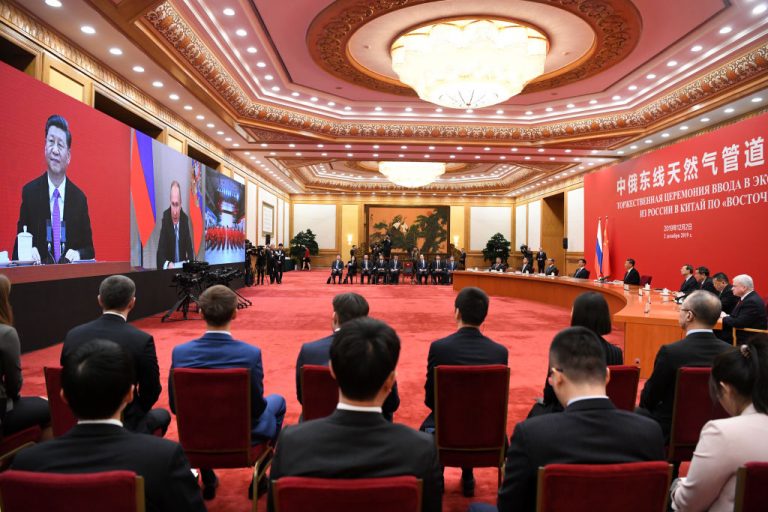Amid rising tensions with the West, Russia and China are seeking to strengthen their ties. However, experts believe that the two countries are still not in a position to support each other militarily.
On Dec. 15, Chinese President Xi Jinping held a virtual meeting with his Russian President Vladimir Putin for the second time this year. It was held days after the G7 nations criticized Russia for its build-up of troops at the Ukrainian border. In the meeting, which was seen as a show of solidarity, Xi extolled China’s relations with Russia as better than an alliance.
“Beijing and Moscow are forging closer ties because both governments view deeper bilateral cooperation as beneficial to their respective national interests, and not primarily because of an ideological affinity between Xi and Putin,” Neil Thomas, an analyst for China and northeast Asia at consulting firm Eurasia Group, told CNBC. He added that Russia and China would prefer to “divide Washington’s political attention between strategic hotspots in Europe and the Indo-Pacific.”
While Moscow has stationed troops along its border with Ukraine, Beijing has been constantly intimidating Taiwan for over a year by conducting military drills.
According to Angela Stent, professor emerita and director of the Center for Eurasian, Russian, and East European Studies at Georgetown University, communist China wants to make sure that the Russians would not interfere if it plans to invade Taiwan.
Success
You are now signed up for our newsletter
Success
Check your email to complete sign up
Likewise, Putin realizes that China will not send military aid if he invades Ukraine. “But [China will] remain completely neutral and that allows [Russia] to do whatever they want in what they consider to be their sphere of influence,” she told the media outlet.
The virtual meeting between the two leaders was yet another cordial exchange that enhanced the countries’ relationship, according to official reports from both Moscow and Beijing. Analysts noted that the key element in China-Russia ties is the bond shared by Xi and Putin. While Xi addressed Putin as his “old friend,” the Russian president described his Chinese peer as both his “dear friend” and “esteemed friend.”
Xi said in the video call that he was looking forward to meeting with Putin in person at the Winter Olympics in Beijing.
“I would like to note that we invariably support each other on issues of international sports cooperation, including rejection of any attempts to politicize sports and the Olympic movement,” Putin stated.
Washington has diplomatically boycotted the Winter Olympics as a protest against the persistent human rights abuses perpetrated by the Chinese regime.
A release from China’s foreign ministry also revealed that Xi assured Russia of China’s full support when it came to sustaining long-term stability. Putin, on the other hand, noted that the relationship between the two countries is at their best levels ever. On state television, he described the relationship as “a true model” of interstate cooperation for the 21st century.
In a recent phone call with President Joe Biden, Putin told Washington that if it is seeking a guarantee that Russia will not invade Ukraine, then Kyiv must not be allowed to join NATO. However, Biden told Putin that the U.S. will not entertain such claims.
An attack on one NATO member is seen as an attack on all member nations. Since 2002, Ukraine has wanted to join NATO, but Russia has vehemently opposed the idea due to security issues.














